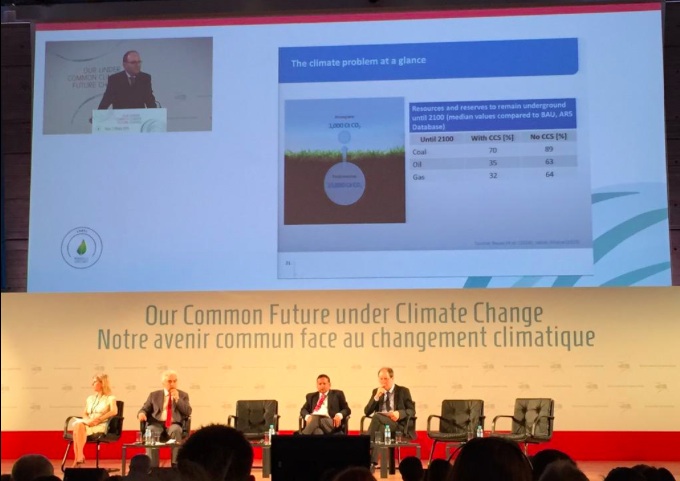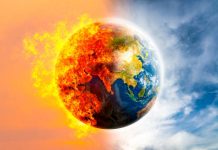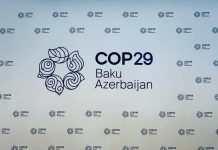
By Esther Opaluwah
About 2000 scientists from almost 100 countries have identified planned reduction of carbon dioxide emissions and other heat-trapping gases to zero levels as credible pathways to stabilising the global climate.
While showcasing evidence-based ways to both reduce emissions and build resilient societies, the experts warned that growing political momentum on temperature limits does not manifestly translate into a possible global climate deal of below two degree Celsius limit at the December 2015 Paris conference.
The biggest international climate science conference before UNFCC COP 21 which held from 7-10 July 2015 considered new aspects of climate change projections including impacts on ocean life and economic activities from rising temperature and ocean acidification.
A total of 165 sessions were presented by academics from the physical and social sciences, with full consideration of ways to limit and manage change.
A statement issued on the closing day of Our Common Future under Climate Change (CFCC15) explains that “a two in three probability of holding warming to 2°C or less will require a budget that limits future carbon dioxide emissions to about 900 billion tons, roughly 20 times annual emissions in 2014. “
In practice, limiting global warming to 2 degrees Celsius above pre-industrial levels will require cutting emissions of heat-trapping gases by 40-70% below current levels by 2050.
Chairman of the CFCC15 Scientific Committee and director of the US Carnegie Institution’s Department of Global Ecology Chris Field said, “We are moving to a post-carbon era, where climate-change mitigation and adaptation are combined with other goals to build a sustainable future”.
“This conference has shown that social and technological innovation, from individuals, communities, firms, and nations, can lead to mitigation and adaptation options that are scaleable, fair and cost-effective,” added Scientific Committee member and Professor at the University of Oslo Karen O’Brien.
Chair of the Organising Committee and director of the Institut Pierre-Simon Laplace (France) Hervé Le Treut said, “The conference demonstrated the commitment of the climate research community to contribute to a long-term vision for a sustainable future. We have entered a new stage for climate science where the agenda of science is shifting – it is no longer exclusively alerting us to risks, but increasingly contributing to solutions.”
According to Le Treut there are opportunities for science to innovate and evaluate new solutions that can scale rapidly; expand knowledge exchange to support policy options; and continue to broaden horizons and inspire new approaches.
Key areas ripe for innovation include technologies, supply chains, organizational models, and policy instruments, with opportunities for transformation in, for example, agriculture, transport, and urban design.
Speaking at the closing ceremony, French Foreign Minister Laurent Fabius welcomed the work of scientists in challenging policy makers to take action on climate change. “The reality of climate change is no longer seriously contested, that’s a victory that goes to scientists,” stated Fabius.
The French Minister added that COP 21 in Paris later this year needs to be a universal and legal binding agreement and that the political leadership should do its best to ensure the world has a favorable climate deal.
“The message from climate scientists has been heard. We will do all we can not to disappoint you at COP 21,” said the Minister.
Equally, Christiana Figueres, Executive Secretary of the UN Framework Convention on Climate Change, has welcomed their closing statement saying “the world’s leading researchers on climate have underlined the crucial importance of nations focusing on a long term goal–call it zero emissions, net zero or climate neutrality. The overwhelming consensus is that Paris 2015 needs to send an unequivocal signal that the world will take a path towards a steep and deep decline in greenhouse gas pollution by the second half of the century.”
Youba Sokona, Scientific Committee member and Special Advisor at the South Centre (Switzerland) said, “The window of opportunity is wide open. This conference has given a positive assessment of societies’ ability to make the transition to low- to zero-carbon development that is equitable and sustainable. The policies we need are about supporting aspirations of all groups while addressing the climate challenge”.
Laurence Tubiana, French Ambassador for the UN climate change negotiations, said, “I am amazed at the variety of scientific and interdisciplinary work I have seen in the past 4 days. Scientists are working, with many partners, to develop long-term pathways at the scale of cities, economic sectors like agriculture and national economies, with strong focus on making solutions operational.”
“We need the COP21 to be the political answer to that work, and show that the transition to a decarbonized and climate-resilient economy is not just necessary; but also that it is feasible (politically, economically and technologically); and even beyond that, that it is inevitable, and underway, ” Tubiana added.



















